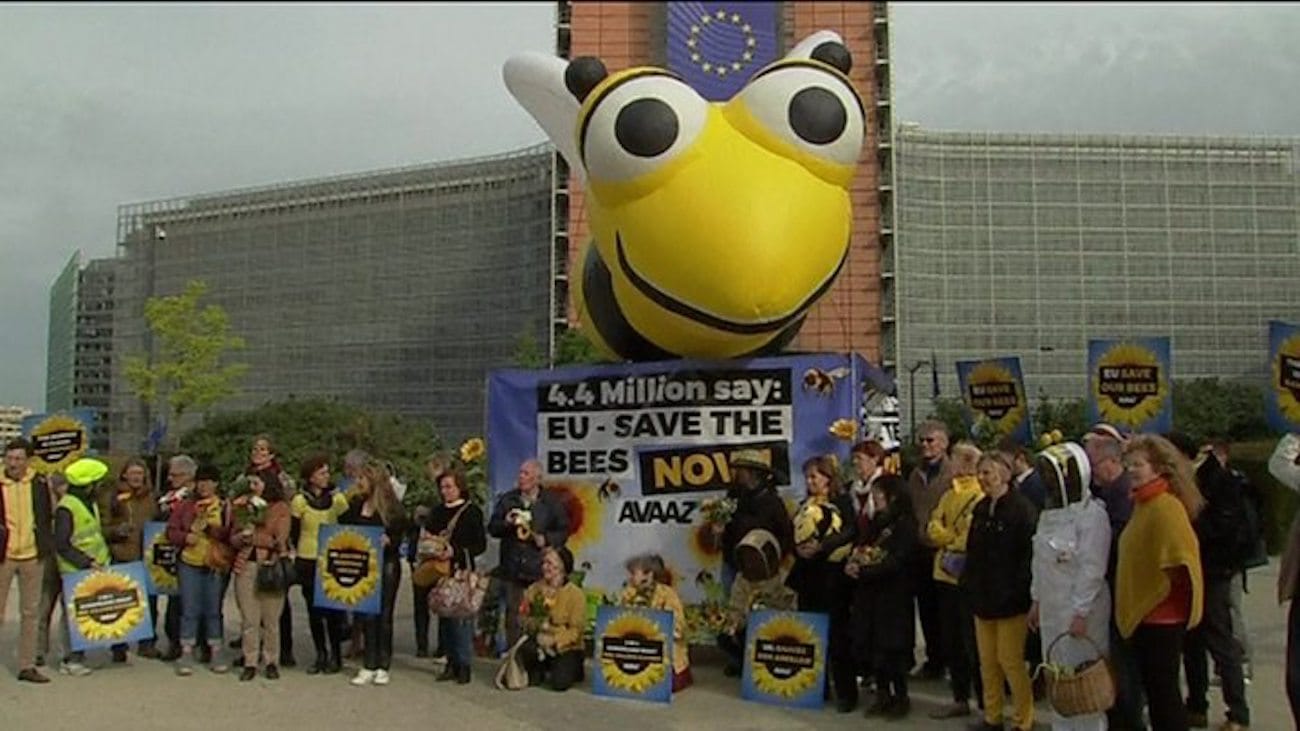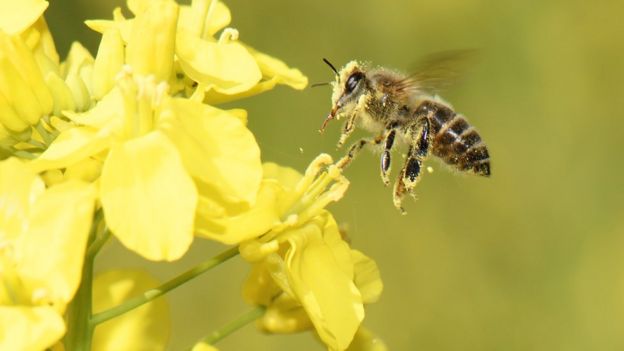EU Member States Support Near-Total Neonicotinoids Ban

Once again, the Europeans lead the US with policies and practices that ensure public and environmental health.
As reported in the article below, neonicotinoid-based insecticides are used on most of our seeds to prevent their being eaten by insects. These are very harmful for the very reason that they are so effective. When mixed with other poisons they are even more dangerous.
While this particular study deals with the unintended poisoning of honeybees, there has been almost no research on what these poisons are doing to other insects, or the viruses, bacteria and other microorganic lifeforms which are the governing and regulating mechanisms for everything alive.
Like the tobacco companies in past decades, American herbicide and insecticide producers have succeeded in managing regulatory studies away from close scrutiny of the broader effects of their products. Like back in the day, our universities and agencies have helped them do this.
NOTE: this article was initially published to BBC.com on April 27, 2018. It was written by Matt McGrath.
Member states have voted in favour of an almost complete ban on the use of neonicotinoid insecticides across the EU.
Scientific studies have long linked their use to the decline of honeybees, wild bees and other pollinators.
The move represents a major extension of existing restrictions, in place since 2013.
Manufacturers and some farming groups have opposed the move, saying the science remains uncertain.
Neonicotinoids are the most widely used class of insecticides in the world, but concerns about their impact on bees have been reinforced by multiple research efforts, including so-called “real world” trial results published last year.
Change of heart
Back in 2013 the European Union opted for a partial ban on the use of the three chemicals in this class: Imidacloprid, clothianidin and thiamethoxam.
The restrictions applied to crops including maize, wheat, barley, oats and oil seed rape. The newly agreed Commission regulation goes much further, meaning that almost all outdoor uses of the chemicals would be banned.
Voting on the proposal had been postponed a number of times as countries were split on the move. However, Friday’s meeting saw a qualified majority vote in favour of the ban.
The action has been driven by a recent report from the European Food Safety Authority (Efsa), which found that neonicotinoids posed a threat to many species of bees, no matter where or how they are used in the outdoor environment.
“The Commission had proposed these measures months ago, on the basis of the scientific advice from the European Food Safety Authority,” said EU Commissioner for Health and Food Safety, Vytenis Andriukaitis.
“Bee health remains of paramount importance for me since it concerns biodiversity, food production and the environment.”
Another key element that helped push the vote through was the UK’s change of heart on the use of these insecticides. Environment Secretary Michael Gove announced last November that Britain would now support further restrictions.
“I think it has helped the dynamic,” Franziska Achterberg from Greenpeace told BBC News.
“It has helped sway Ireland definitely, and then lately, the Germans, the Austrians and the Dutch. I think the fact the UK had come around was a good signal for them as well, that they could not stay behind.”

Growers will only be free to use neonicotinoids in greenhouses across the EU, despite some environmental groups having reservations about the chemicals leaching into water supplies. Other neonicotinoids, such as thiacloprid, will continue to be exempt from the ban.
Environmental campaigners have welcomed the ban. Some five million people around the world had signed petitions calling for an extension of restrictions.
“Banning these toxic pesticides is a beacon of hope for bees,” said Antonia Staats, from Avaaz,
“Finally, our governments are listening to their citizens, the scientific evidence and farmers who know that bees can’t live with these chemicals and we can’t live without bees.”
No benefits for bees
Many farmers are unhappy about the increase in restrictions, saying they do not believe they are warranted on scientific grounds and that the existing partial ban has not delivered results.
“The Commission hasn’t been able to find that these restrictions have delivered any measurable benefits for bees,” said Chris Hartfield from the National Farmers’ Union (NFU) in the UK.
“That has been a big question for us, and if we can’t be certain they can deliver measurable benefits why are we doing this?”
The new regulation will be adopted in the coming weeks and will be applicable by the end of the year. Some farmers believe it will have significant impacts on the types of crops grown across the Continent.
“The irony of the current restrictions is that it has led to the decline of oil seed rape being grown in the UK and that’s reflected across the whole of Europe,” Mr Hartfield said.

“We’re not decreasing our consumption of that product; we are just importing it from outside Europe, where it is often treated with neonicotinoids. I would expect to see that continue.”
Some campaigners believe that the extended ban heralds a new era for EU farmers where the needs of the environment are seen as more important than production.
“It’s a significant indication that we need a different form of farming across Europe that farms with nature and not against it,” said Sandra Bell from Friends of the Earth.
“The ban on neonicotinoids could be a really important step towards a more general questioning of the use of pesticides and the harm they are doing to our environment.”
